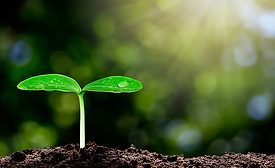Home » bio-based materials
Articles Tagged with ''bio-based materials''
Bostik reports that these adhesives work well with traditional substrates and complement the use of a variety of more sustainable substrates.
Read More
From the Editor
Adhesive and Sealants Address Wide-Ranging Sustainability Efforts
From the use of renewable raw materials and sustainable production processes to the development of finished products that support environmentally friendly end uses, the adhesive and sealant industry is undertaking a broad range of activities to address sustainability.
November 29, 2021
Renewable Carbon Initiative Celebrates First Anniversary
In the past year, the Renewable Carbon Initiative has grown from 11 founding members to 30 member companies.
November 10, 2021
Strategic Solutions
Sustainable Adhesives in Construction and Packaging
Though sustainability can be difficult to define, many types of adhesives contribute to more sustainable construction and packaging products.
November 8, 2021
Top 5 News that Sticks
RPM Leadership Announcement Remains Top News
Readers continued to be massively interested in news from RPM regarding its leadership team.
November 1, 2021
DuPont Wins 2021 ASC Innovation Award; Kraton and Arkema Named Runners-Up
The award-winning two-component spray polyurethane foam products from DuPont are used to air seal and insulate various spaces within the building envelope.
November 1, 2021
Addressing Sustainability in Disposable Hygiene Products
Adhesive manufacturers can partner with players all along the supply chain to reduce the environmental impact of single-use disposable hygiene products.
November 1, 2021
Top 5 News that Sticks
Leadership Changes at RPM Draw Strong Reader Interest
Last week, readers were most interested in a personnel update from RPM.
October 25, 2021
Sartomer Specialty Resins Earn USDA Certified Biobased Label
The label assures that the percentage of renewable bio-based content is third-party certified and monitored by the USDA.
October 21, 2021
Arkema to Build New Bio-Based Polyamide 11 Powders Plant in China
The new facility will support demand in Asia for advanced bio-circular materials.
October 14, 2021
Keep the info flowing with our eNewsletters!
Get the latest industry updates tailored your way.
JOIN TODAY!Copyright ©2025. All Rights Reserved BNP Media.
Design, CMS, Hosting & Web Development :: ePublishing










